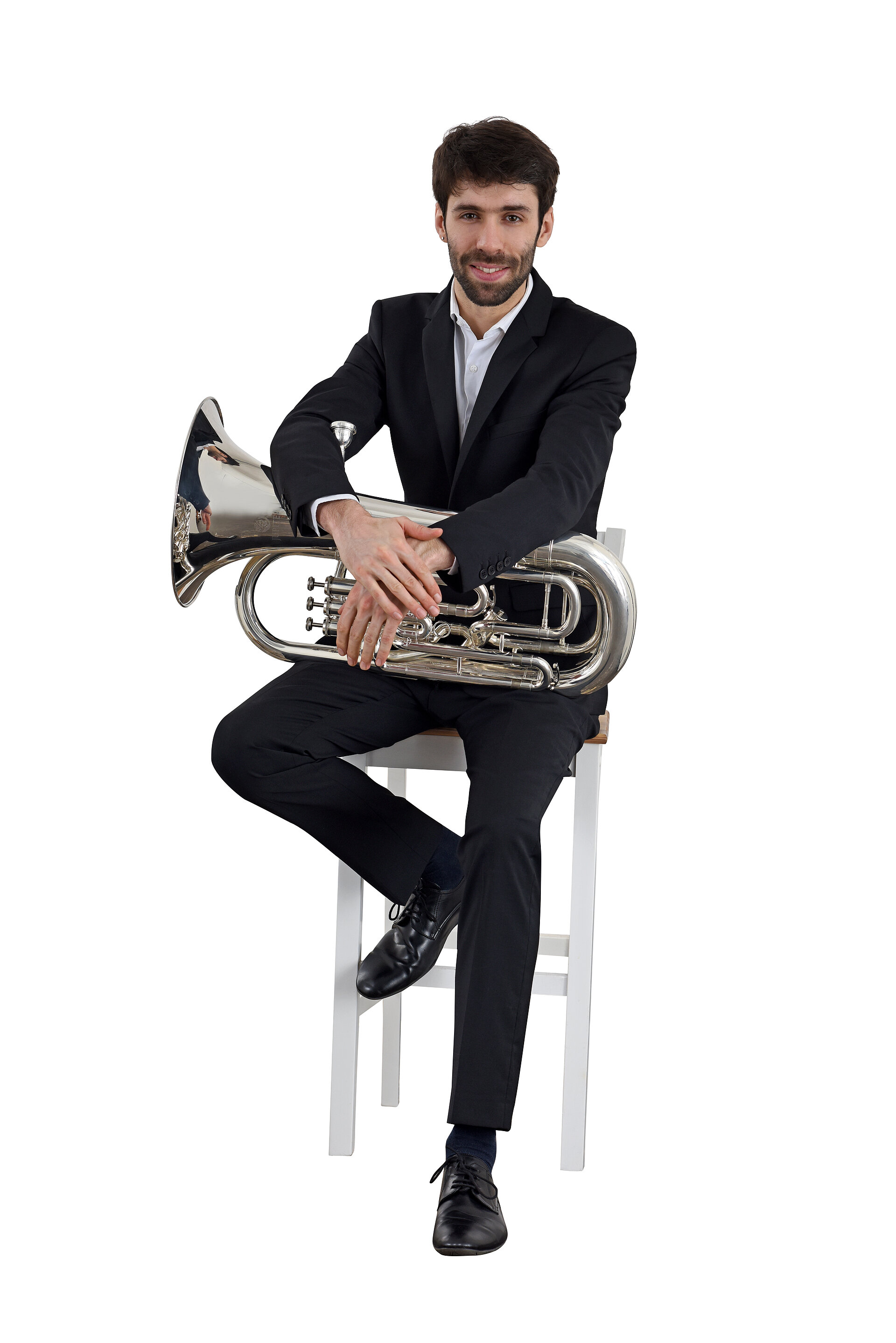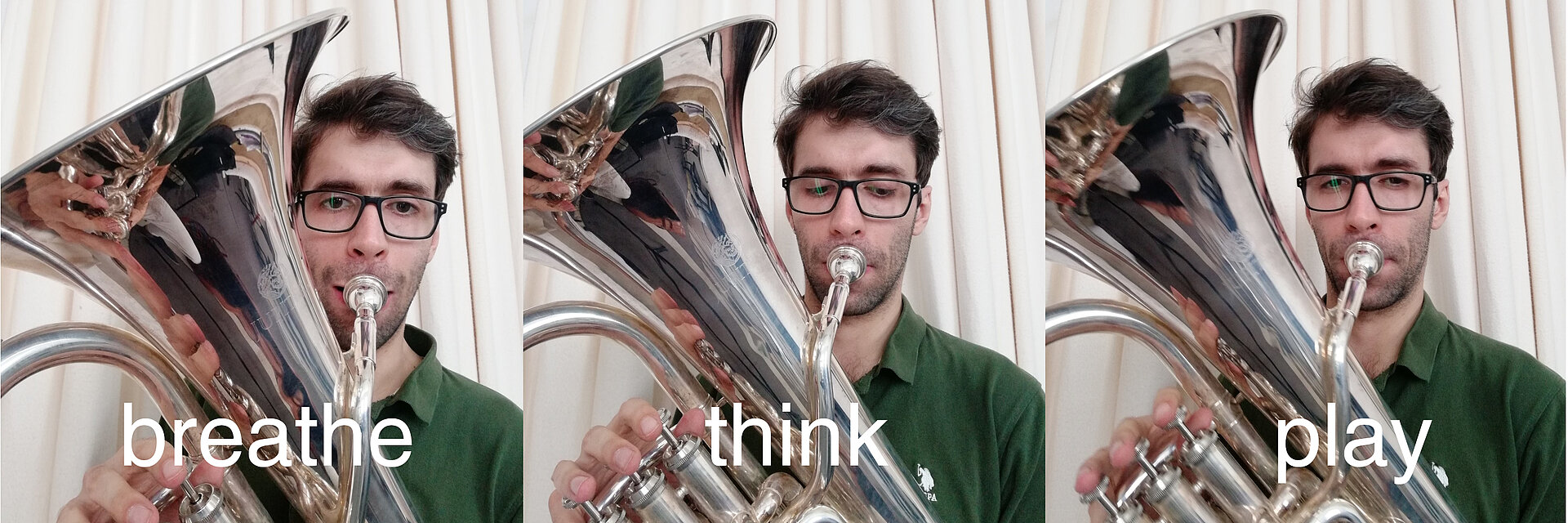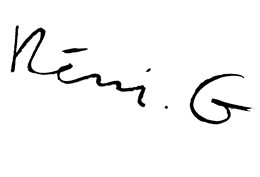Playing without mistakes - An evening at the Berlin Philharmonic
Playing a brass instrument is already a challenge in itself and becomes even more tricky when you play in front of an audience. I suppose most musicians are only too aware of the fear of not sounding their very best in tricky passages—or indeed of being unable to produce any sound at all.
Two years ago, I played the euphonium part for “Bydlo” from Mussorgsky’s “Pictures at an Exhibition” with a symphony orchestra. Ravel arranged that piece for an orchestra, with a euphonium (called “French tuba” in those days) solo. That particular performance took place at the Berlin Philharmonic, and I was already suitably impressed by the hall itself. “Bydlo” was the fourth piece we played, and I had to wait for 15 minutes, with the cold instrument in my lap. I was on after a piece called “Tuileries”—and the only accompaniment I had were softly played celli: the woodwinds close their theme with rapid, high notes, which are my cue. The conductor looks at me, gives the cello players a sign—and off we go. Those are nerve-wracking situations in which most of us are likely to miss the odd note here and there. Allow me to share a few experiences in this respect.

What is a Mistake?
It is rather common for musicians to complain about the number of mistakes they played during a performance. Yet, what exactly is a mistake? In classical music, intonation and the interpretation of a score are far more important than rhythm and “micro timing”. In jazz and pop music, on the other hand, rhythm and tone take center stage. It would therefore appear that whether I make a mistake essentially depends on the musical context. There is no such thing as a perfect interpretation. Even though I would gladly avoid any mistakes, they are ultimately only small details that are only noticed by the players themselves. As a musician, I prefer to focus on the performance as a whole rather than on tiny details. I try to avoid thinking note by note—overall musical phrases are what really counts. In addition, I believe that avoiding mistakes is not an end it itself: it is only a means to delivering a beautiful interpretation. It is perfectly possible for a musician to play all notes perfectly without the slightest hint at musicality. Even though one may have a relaxed attitude regarding errors, playing a brass instrument still remains problematic. Stress and fatigue may cause a brass player to miss a note, especially in the high register. Routine and a good preparation may be useful to avoid such situations.
Breathing in the tone
Playing without making mistakes requires a solid preparation, which comes down to eliminating one mistake after the other. Only that will allow me to give a convincing performance. When I make mistakes while practicing, I need to remain positive and use my patience to find out where and why I missed. Mistakes are the core ingredient of making progress. Who can claim to have learned to ride a bicycle without ever falling? Playing a brass instrument is similar: there is no way I can play everything perfectly the first time around. How, then, can I remain positive whenever I notice a mistake?
One could argue that the mere fact of noticing a mistake is already a good sign. Most musicians are so used to their way of playing that they hardly ever notice when something goes wrong. From that perspective, realizing my mistake is already half the work.
I myself know of three efficient ways to notice mistakes:
- By using a tuner and a metronome.
- By playing in front of the teacher.
- By recording oneself (admittedly the hardest approach).
As soon as I identify a mistake, I try to correct it, for which I may need to add a new exercise to my playing routine. The very first note is always dangerous for a brass player. The instrument is still cold and the concentration may not have peaked yet.

During my singing classes, my teacher always told me to “Think the note as you breathe in!” By this, she meant that I should already think about the next note and syllable in order to prepare my voice muscles. This will make singing that note much easier. I use the same technique for playing a brass instrument—and it works a treat.
Here’s an additional tip: I use a “duh” tongue push at the onset of intricate passages to get the first note right.
Mistakes should never be viewed negatively. They merely reveal the areas we still need to work on. I avoid practicing when I’m tired. “The body also learns mistakes”—and there is no point in repeating a passage over and over if I also repeat the mistake. I furthermore find it important to give myself a pat on the back for the work I have accomplished, even though no immediate progress can be measured.
After the performance
The cellists play the first notes—probably in G# minor, which I can barely hear from where I sit on stage. I start a few second later when the conductor tells me to do so. I can feel the pressure to play everything perfectly, and I feel like walking on raw eggs. I wasn’t satisfied with my solo at the Berlin Philharmonic. Even though I managed to play through the entire piece, I wasn’t happy with my performance. Although several musicians and members of the audience came to congratulate me, I was unable to accept their praise until I listened to the recording. I realized that my own impression had been wrong and that I had been too critical of myself: the change of perspective changed my perception of my own playing. An audience hardly ever comes to a venue to listen to people playing a piece flawlessly. They come to experience music. A performance is a journey, a dream with open eyes. Once you realize that, thinking only about your mistakes becomes futile.

